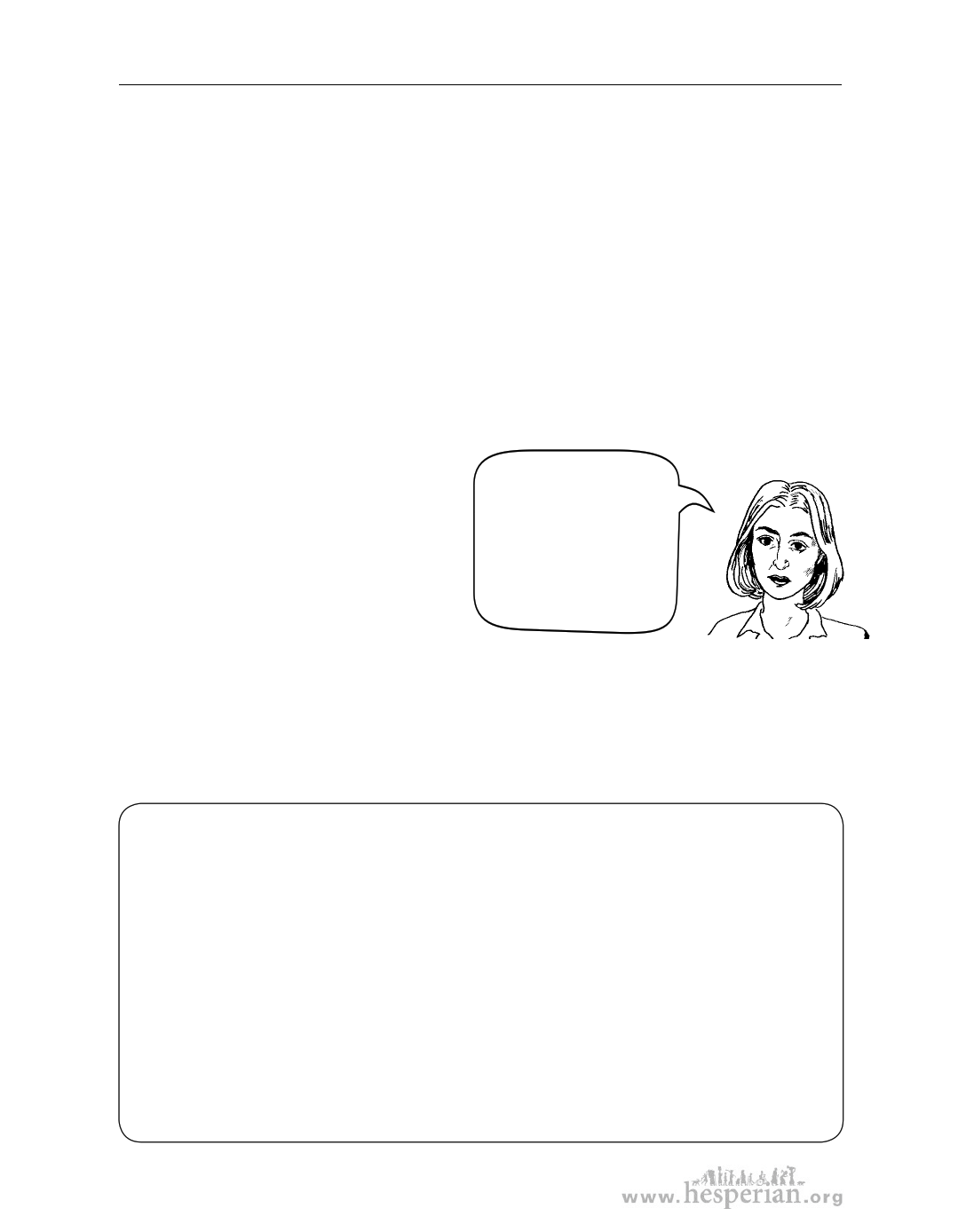
316 chapter 15: Support for caregivers
Paid personal assistants
Sometimes a woman with a disability can pay a personal assistant whose work
helps her have more freedom and be more independent. In some communities,
the government provides money for people with disabilities to hire someone to
assist them with daily care or will pay family members and friends to assist them.
Sometimes a disabled woman gives her assistant food or a place to stay.
Although the work that assistants do, such as taking care of daily hygiene
including bladder and bowel care, is very important to a person’s health, it is
usually considered a low-status job and often pays very little. Many personal-care
assistants say that family members sometimes want to control them and make
unreasonable demands on their time, or dismiss them without explanation. And if
disabled people are isolated, they may not understand how badly the attendant is
being treated.
Paid caregivers, like other workers,
need fair wages, time off, vacations,
and sick leave.
Organizations and community
groups that train and provide jobs for
personal assistants can:
No one bothers to be
polite to me. If only
Christine would realize
that I need a little
time to myself during
the day, and a day off
from work.
• help set standards for working
conditions.
• educate about ways to prevent and reduce conflicts.
• offer training in counseling skills to better meet the emotional needs of women
with disabilities.
• teach skills for lifting, helping someone exercise, and preventing infection.
Community workers make time for caregivers
In Ghana, a group of community workers who help older people gathered
a group of caregivers together to talk about how to make things easier
for them. They started the group because when the community workers
traveled to different villages in Ghana, looking in on older people and
assisting them with everyday tasks, they realized that in addition to
helping older people, they also needed to look out for the people who
help the older people every day. Now, whenever a community worker
goes to visit an older person, she also makes time to talk to the person’s
caregivers. She listens to their feelings and problems. She also helps them
with their tasks if they need it, and makes sure the caregiver gets a break
for a little while.
A Health Handbook for Women with Disabilities 2007